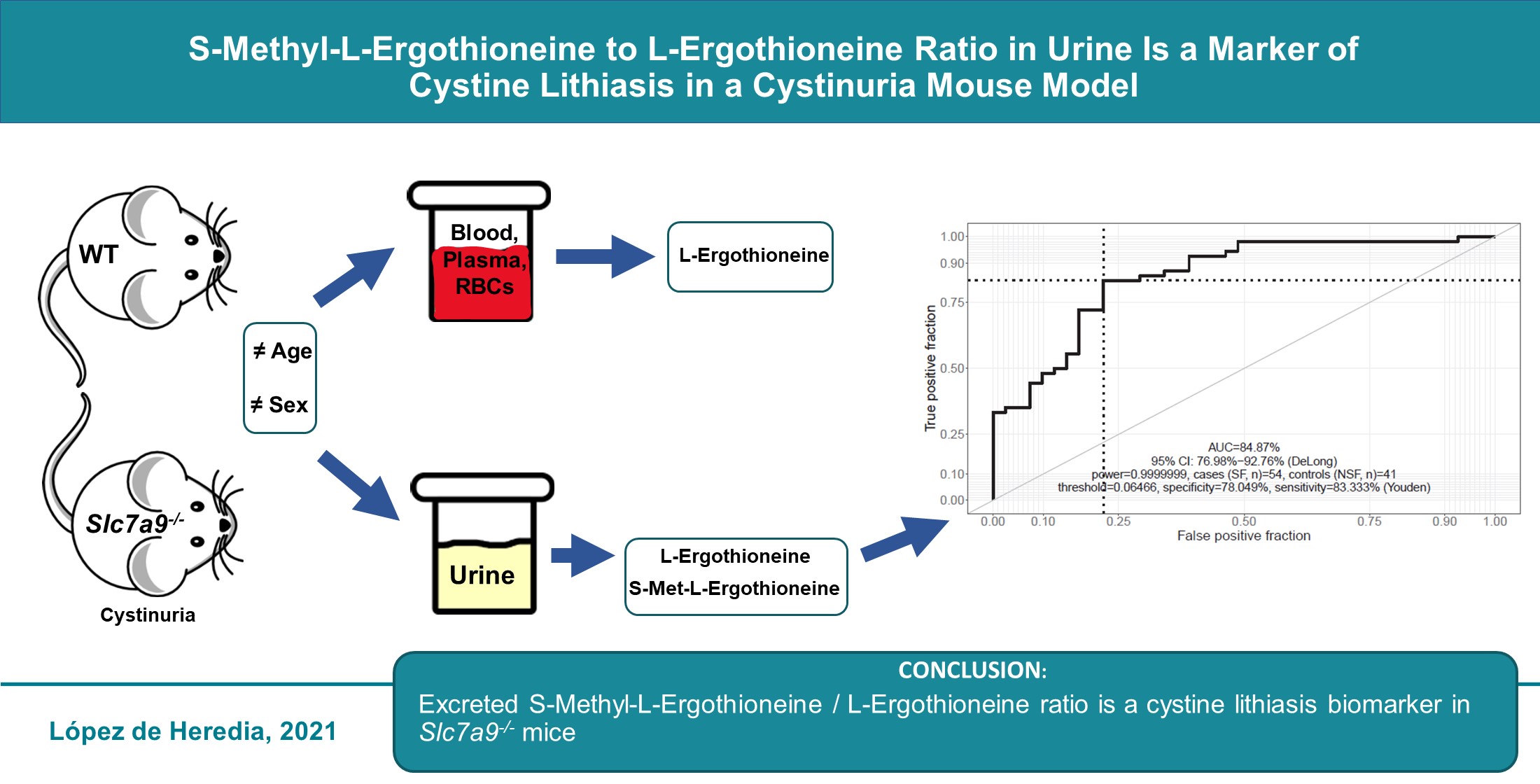Researchers find a potential biomarker for the appearance of stones in cystinuria

A new study identified in a murine model of cystinuria a potential biomarker of the appearance of cysteine stones in the urinary tract. Cystinuria is a minority disease featuring recurrent episodes of formation of calculi that can cause the progressive reduction of kidney functions, which affects the life quality of the affected ones and can even cause kidney failure. The study, published in the journal Antioxidants, is coordinated by Professor Virginia Nunes, from the Department of Physiological Sciences of the UB and member of IDIBELL.

A new study identified in a murine model of cystinuria a potential biomarker of the appearance of cysteine stones in the urinary tract. Cystinuria is a minority disease featuring recurrent episodes of formation of calculi that can cause the progressive reduction of kidney functions, which affects the life quality of the affected ones and can even cause kidney failure. The study, published in the journal Antioxidants, is coordinated by Professor Virginia Nunes, from the Department of Physiological Sciences of the UB and member of IDIBELL.
This potential biomarker of the presence of stones, identified in this study and based on the quantification of two compounds in the urine, has proved to be able to detect the presence of cystine stones in a mouse model with the disease regardless of the age and sex.
